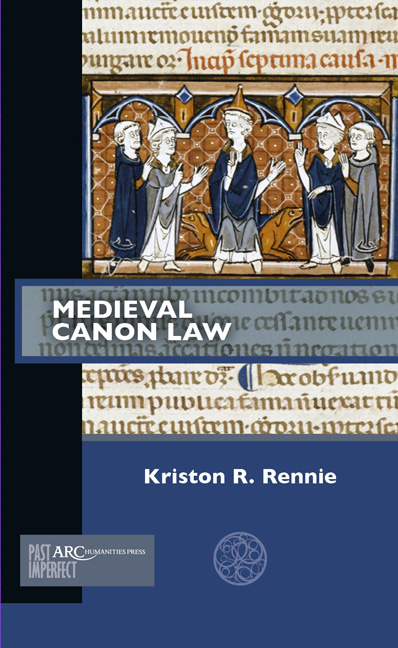Chapter 5 - Practice (Reality)
Published online by Cambridge University Press: 27 January 2021
Summary
Medieval canon law was made and enacted. It shaped church discipline, doctrine, governance, internal organization, and structure. Its contemporary application and interpretation is what made it valid. Appreciating its core function thus presents the modern historian's greatest interpretive challenge. Examining canon law in purely textual form—in isolation or as part of a consolidated collection, commentary, or interpretation—too often pulls us away from the sociopolitical world in which it was created and upheld. We often read that it regulated human conduct and relations throughout medieval Christendom, from cradle to grave. But in truth, the subject casts a long theoretical shadow over the historical discipline, making it hard to understand its experience by, and meaning to, all levels of the Christian community. The rest of this book is dedicated to addressing this problem.
It helps to consider the law as a centralized political instrument—a conduit for authority, clarification, and defense. It was something to be summoned and harnessed, to the advantage of those using it or seeking its protection. For these reasons, medieval canon law is a subject of practicaldisciplinary theology as much as legal history. The centrality of the sacraments (baptism, confirmation, penance, the Eucharist, holy orders, matrimony, and extreme unction) in medieval Christian life present a classic example of how interwoven the canon law was in daily customs, beliefs, rituals, practices, and traditions. It goes without saying that every Christian experienced the tradition of baptism, as official entry into the Christian community. It is also worth pointing out that nobody would have considered it a legal obligation. The same could be said for Eucharistic practice and contemporary understandings on the Real Presence of Christ (i.e., transubstantiation).
These were regulatory aspects of everyday Christian liturgical life. Most importantly, they reflect a formative stage in early medieval canon law: a communal or congregational practice that existed well before the collective concern of church councils, diocesan organization, and formal legal collections. In the progress of time, however, canonical norms were enforced down to the parish level, offering a tangible outcome of developing sacramental practice, textual interpretation, and enactment.
- Type
- Chapter
- Information
- Medieval Canon Law , pp. 59 - 86Publisher: Amsterdam University PressPrint publication year: 2018



